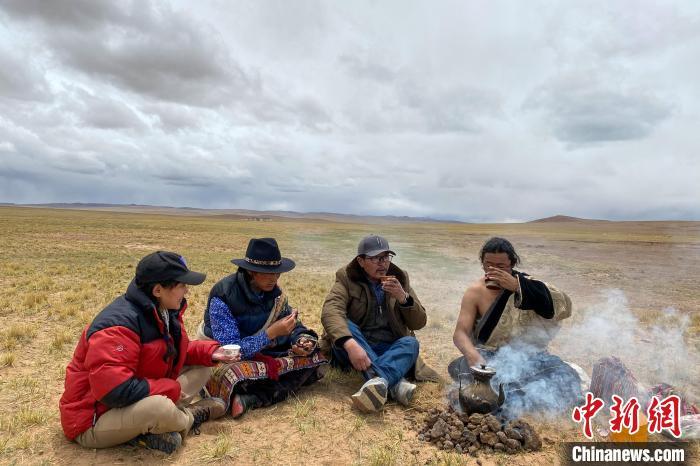Pema Tso: bringing suggestions for Xizang from field study

“Anthropological research focuses on field investigation. After becoming deputy to the National People’s Congress (NPC), I always think about how to perform my duties better. Later, I think that I should pursue my academic interest in anthropology and perform my duties for Xizang and farmers and herdsmen in Xizang.” Pema Tso, deputy to the NPC and researcher of the Academy of Social Sciences of Xizang Autonomous Region, said when accepting an exclusive interview.
Pema Tso was born in Nagqu on the grassland in the north of Xizang. She is an anthropologist who mainly studies nomadic communities. She studied at the Minzu College of China (Minzu University of China currently) and majored in ethnology related to anthropology. After she graduated, she worked at the Academy of Social Sciences of Xizang Autonomous Region. After that, Pema Tso studied for a master’s degree and doctor’s degree in anthropology at the University of Bergen in Norway and Charles Sturt University in Australia.
“In 2012, I officially got the doctor’s degree and went back to the Academy of Social Sciences of Xizang Autonomous Region. At that time, with two grants from the National Social Science Fund, I continued to study the nomadic world,” said Pema Tso. During the two field investigations, she tried to change and help the herdsmen she encountered in the fields.
Pema Tso completed studies of projects such as Nursing Home on the Grassland - Practice of Elderly Care under the System in the Nagqu Pasturing Area from the Perspective of Anthropology. In the research project on elderly care, Pema Tso believed that the research on the elderly care model of the animal husbandry society in Xizang could provide local and diversified reference opinions for the further adjustment of elderly care policies in China. The research based on solid anthropological field investigation is very valuable and urgent.
According to information from the Civil Affairs Department of Xizang, 80 centralized elderly care centers for people who are very poor have been built in Xizang, covering 74 counties and districts, which can provide centralized elderly care services to people who are very poor and willing to participate in the centralized elderly care.
This year, Pema Tso submitted several suggestions, including solving the issue of continuing special education for disabled adolescents in the Xizang Autonomous Region and on lowering the age line for elderly subsidies, etc. These suggestions came from the information obtained in the field investigation and the professional and feasible opinions of competent departments of the industry were combined.
“As the economy develops and medical conditions are constantly improved, the average life span in Xizang has been continuously prolonged, but it is still lower than the national average level. Compared with other provinces and regions, Xizang boasts more special geographical and climate conditions, such as high elevation, oxygen deficit, and being high and cold,” said Pema Tso. She suggested lowering the age of people enjoying old age allowance by 10 years according to the actual conditions of the plateau.
